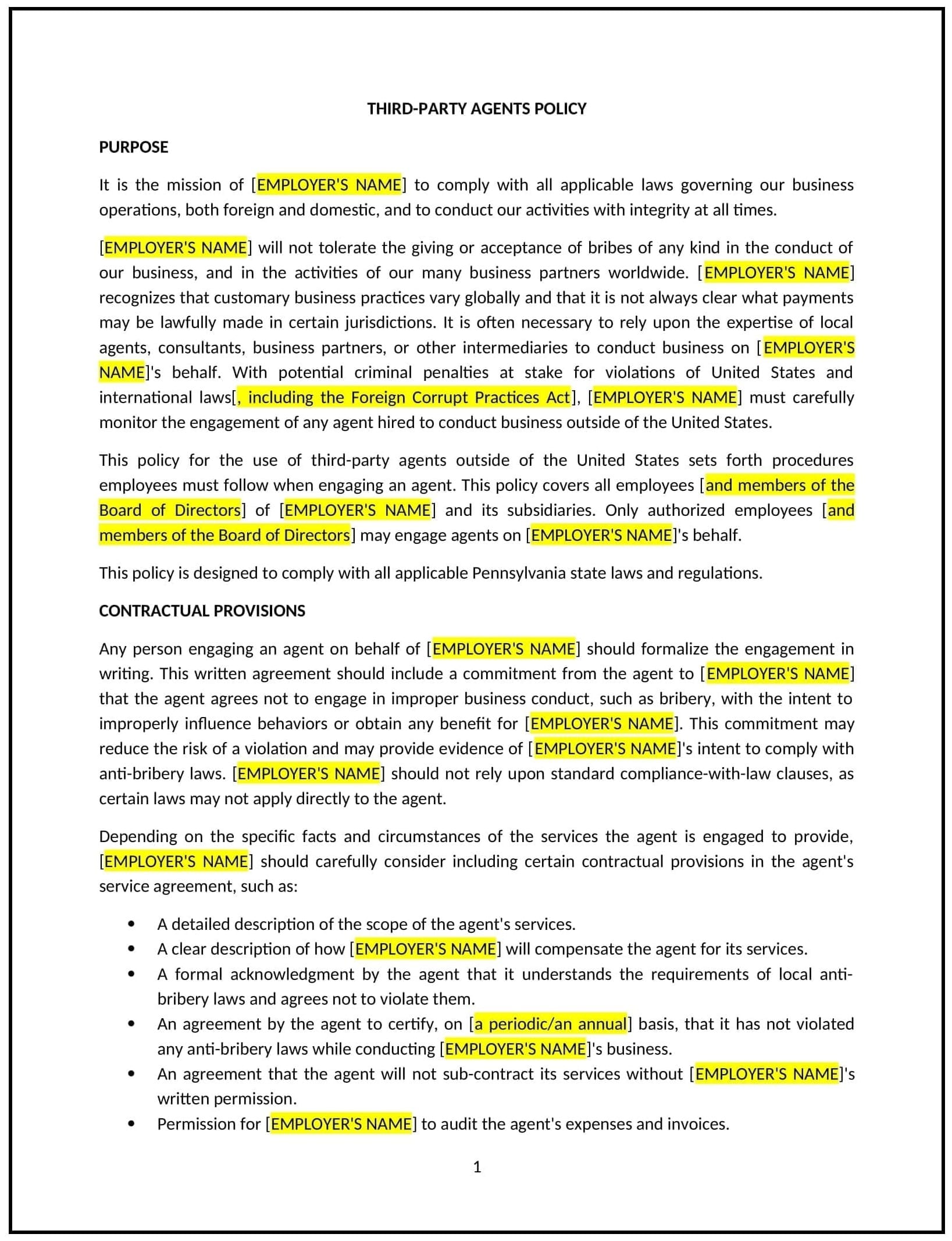Third-party agents policy (Pennsylvania): Free template
Got contracts to review? While you're here for policies, let Cobrief make contract review effortless—start your free review now.

Customize this template for free
Third-party agents policy (Pennsylvania)
This third-party agents policy is designed to help businesses in Pennsylvania manage relationships with external agents, contractors, or representatives acting on their behalf. By defining clear expectations, responsibilities, and compliance requirements, this template ensures accountability and mitigates risks associated with third-party engagements.
By using this template, businesses can protect their reputation, enhance transparency, and align with Pennsylvania-specific legal and regulatory standards.
How to use this third-party agents policy (Pennsylvania)
- Define third-party agents: Clearly outline who qualifies as a third-party agent, such as contractors, consultants, or vendors acting on behalf of the business.
- Specify responsibilities: Provide guidelines for the roles and responsibilities of third-party agents, including compliance with company policies and regulations.
- Include screening procedures: Detail the steps for selecting and vetting third-party agents, such as background checks or due diligence reviews.
- Address compliance requirements: Require agents to adhere to applicable Pennsylvania and federal laws, as well as any industry-specific standards.
- Reflect Pennsylvania-specific considerations: Tailor the policy to address local regulations, such as tax compliance or licensing requirements, relevant to third-party relationships.
Benefits of using a third-party agents policy (Pennsylvania)
A well-structured third-party agents policy supports accountability and operational integrity. Here's how it helps:
- Mitigates risks: Reduces exposure to legal or financial risks by clearly defining expectations for third-party agents.
- Promotes compliance: Ensures third-party agents align with Pennsylvania laws and federal regulations.
- Protects reputation: Safeguards the business’s public image by holding agents accountable for their actions.
- Enhances transparency: Establishes clear processes for managing third-party relationships and ensuring compliance.
- Reflects local needs: Addresses Pennsylvania-specific requirements, such as local tax laws, licensing, or industry norms.
Tips for using a third-party agents policy (Pennsylvania)
- Communicate the policy: Share the policy with all third-party agents and ensure they understand their responsibilities and expectations.
- Conduct regular reviews: Periodically assess the performance and compliance of third-party agents to ensure ongoing alignment with company standards.
- Require contracts: Use formal agreements to outline the terms of the relationship, including compliance requirements and confidentiality clauses.
- Monitor activities: Implement systems to track the actions of third-party agents and identify potential risks or violations.
- Review periodically: Update the policy to reflect changes in Pennsylvania laws, industry regulations, or business needs.